#blockchain service
Explore tagged Tumblr posts
Text
Create your own Blockchain from Scratch

Create Your Own Blockchain
A blockchain is a distributed digital ledger that records transactions in a verifiable and permanent way. Creating your own blockchain begins with defining a unique consensus mechanism, determining the block structure, and selecting the right cryptographic algorithm. Developing a decentralized network requires coding the protocol, ensuring security through encryption, and establishing a robust consensus algorithm like proof-of-work or proof-of-stake. Once implemented, nodes across the network validate transactions, and miners contribute to block creation, forming the backbone of your custom blockchain. Regular updates and community engagement are essential for maintaining a thriving and secure blockchain ecosystem. BlockchainAppsDeveloper explains how to Create Your Own Blockchain From Scratch with a Step-By-Step Process and Guide. Build your Blockchain Now!
What is Blockchain?
Blockchain is a decentralized and distributed digital ledger technology that records transactions across a network of computers. It ensures transparency and security through cryptographic hashing and consensus mechanisms, like proof-of-work or proof-of-stake. Each block in the chain contains a timestamped list of transactions, forming an immutable and chronological record. Blockchain technology is widely used in various industries, from finance to supply chain as it provides trust and eliminates the need for intermediaries.
Why Create Your Own Blockchain?
Creating your own blockchain empowers you to tailor solutions to specific business needs, fostering decentralization, enhancing security, and reducing reliance on centralized entities. This self-sufficiency opens avenues for innovation, paving the way for advancements across diverse industries. BlockchainAppsDeveloper is a Leading Blockchain Development Company, That helps to Create Your Own Blockchain From Scratch with Cutting-edge Technologies. Our experienced team will guide you through the entire journey, from designing the architecture to deploying the blockchain solutions. Here are some reasons to create your own blockchain,
Tailored Solutions: Blockchain Development allows customization to meet the specific needs and requirements of your business or industry. You can design features, consensus mechanisms, and smart contracts that align precisely with your objectives.
Decentralization and Security: By creating your own blockchain, you reduce dependence on centralized entities, enhancing security through decentralized validation and cryptographic principles. This self-reliance helps protect against fraud and ensures the integrity of your data.
Scalability and Performance: Developing a blockchain from scratch enables you to design it with scalability in mind and ensures efficient processing of transactions as your network grows. This scalability is crucial for handling increased transaction volumes without compromising performance.
Innovation and Pioneering: Creating your own blockchain provides a platform for innovation, allowing you to pioneer new solutions and technologies. This can lead to advancements in various sectors, from finance and supply chain to healthcare, by addressing specific challenges and improving existing processes.
How To Create Your Own Blockchain? - Step by Step Guide
Discover the potential of blockchain technology as you delve into its core principles. Acquire essential knowledge to craft your personalized blockchain with ease, by following a comprehensive eight-step guide.
Step 1: Identify a Purposeful Use-case
Begin by determining a practical use case for your blockchain. Consider functionalities like information validation, identity verification, intelligent asset management, and insightful contracts. Align your product/business goals with these cryptographic capabilities to ensure relevance and effectiveness.
Step 2: Choose Consensus Mechanisms & Algorithms
Explore various consensus mechanisms and algorithms such as Proof of Work (PoW), Proof of Stake (PoS), and others. Select the one that best suits your business and use case, considering factors like security, scalability, and energy efficiency.
Step 3: Select the Appropriate Platform
Choose a blockchain platform based on the consensus algorithms and mechanisms determined in Step 2. Consider factors like distributed ledger technologies and the freedom to operate within permissioned or permissionless networks.
Step 4: Establish Nodes and Network Structure
Decide whether your blockchain will operate in a permissioned or permissionless network. Define the participants who will validate blocks and configure the consensus methods accordingly.
Step 5: Develop Core Blockchain Elements
Configure critical components of your blockchain, including permissions, asset issuance, re-issuance, atomic exchanges, key governance, multiple signatures, parameters, native resources, address types, and key formats. Ensure these elements are well-designed to optimize network functionality.
Step 6: Build Necessary APIs
Create essential APIs required for your blockchain development, such as address and key pair establishment, audit-related roles, data verification using hashes and digital signatures, data storage and retrieval, and lifecycle management of smart assets and contracts.
Step 7: Design Administrative and User Interfaces
Select appropriate front-end and coding languages, servers, and external databases for administrative and user interface design. Create intuitive interfaces that facilitate easy interaction with the blockchain for both administrators and end-users.
Step 8: Incorporate Web 2.0 & Web 3.0 Elements
Leverage advancements in Web 2.0 and Web 3.0 technologies to enhance your blockchain's capabilities. Integrate innovative solutions to address current challenges and stay ahead of technological trends, ensuring your blockchain solution remains cutting-edge.
By following these steps, you can systematically create a customized and robust blockchain solution, that aligns with your specific use case and incorporates the latest technological advancements. But with a reliable partner like BlockchainAppsDeveloper, a leading Blockchain Development Company you can create your own blockchain cost and time efficiently.
Types Of Blockchain
There are different types of blockchains and you can custom blockchain solutions as per your business requirements, ranging from public and private to hybrid and consortium models. Select the blockchain type that aligns with your organizational goals, ensuring optimal functionality and efficiency.
Public Blockchain
A public blockchain is a decentralized ledger open to anyone with internet access. Participants can conduct transactions and engage in mining operations to validate transactions. The transparency of public blockchains is upheld by the open-source nature of their code, enabling users to scrutinize transactions, identify issues, and propose solutions, ensuring the integrity of historical and contemporary records.
Private Blockchain
Operating within restricted networks or under a single entity's control, a private blockchain maintains decentralization like its public counterpart but on a smaller scale. Often utilized within organizations, it restricts access to a select network, contrasting with the open participation of public blockchains. Also referred to as permissioned or business blockchains, they offer a more controlled environment for specific use cases.
Hybrid Blockchain
Combining the strengths of both public and private blockchains, the hybrid blockchain offers a versatile solution. Organizations benefit from constructing a private, permissioned network alongside a public, permissionless one. This enables selective access to blockchain data, determining which information remains private and what is shared publicly. Hybrid blockchains use smart contracts to grant access, ensuring flexibility without compromising security.
Consortium Blockchain
A consortium blockchain, or federated blockchain, amalgamates features of both public and private blockchains. Unlike hybrids, it involves multiple organizational members collaborating within a decentralized network. Consensus methods are controlled by predetermined nodes, with a validator node overseeing transaction initiation, reception, and validation. Member nodes can also participate in transaction initiation or reception, fostering collaboration within the consortium's decentralized framework.
Top 10 Blockchain Platforms List
Many industries, enterprises, and startups rely on blockchain networks. The following are the top 10 and most popular blockchains that are used for blockchain development in the digital space.
1. Ethereum
2. Binance
3. Stellar
4. Solana
5. Ripple
6. Tron
7. Polygon
8. Tezos
9. Hyperledger
10. NEO
Hire Blockchain Developer from us
Ready to revolutionize your business through blockchain technology? Hire dedicated blockchain developers from BlockchainAppsDeveloper, a leading Blockchain Development Company as well as a Blockchain Game Development Company to embark on a transformative journey in decentralized innovation as we offer the expertise you need to build your own blockchain ecosystem. Our skilled professionals excel in smart contract development, consensus algorithms, and cryptographic techniques, ensuring the security and efficiency of your blockchain project. Leverage our expertise in DApp development, tokenization, and decentralized finance (DeFi) solutions. Whether it's Proof of Work (PoW) or Proof of Stake (PoS), our developers are adept at implementing the latest consensus mechanisms. Partner with us to build a robust, scalable blockchain tailored to your unique requirements.
BlockchainAppsDeveloper - Your Ideal Partner To Create Your Own Blockchain
Create your own blockchain with assistance from BlockchainAppsDeveloper, a leading Blockchain Development Company. Our team of expert developers specializes in designing and building private, public, and consortium blockchains optimized for scalability, security, and extensibility. Whether you need a blockchain for supply chain management, financial services, healthcare, real estate, or any other industry, we provide end-to-end guidance. From initial ideation and proof-of-concept to implementation and post-launch support, BlockchainAppsDeveloper delivers cutting-edge solutions tailored to your specific business needs. Our broad technology stack allows us to recommend the ideal blockchain platform and tools for your use case. As a trusted blockchain development company, we enable enterprises worldwide to increase efficiency, reduce costs, decentralize operations, and transform business models with distributed ledger technology.
#blockchain development#blockchain service#blockchain development company#blockchain company#blockchain development services#create your own blockchain#what is blockchain#blockchain definition
1 note
·
View note
Text
Stay Ahead of the Game: Reasons to Get an #ABCN Mobile App Now
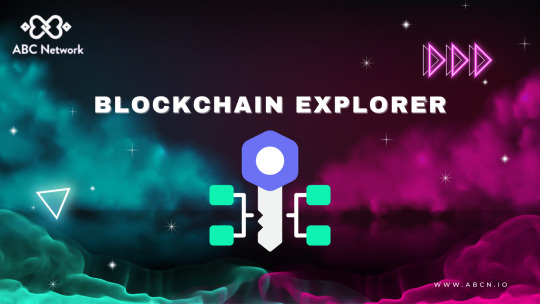
The precise system requirements for the ABCN mobile app are not explicitly mentioned, yet the basic infers says to adjust some possible requirements:
1. This application is compatible with Android and iOS devices, hence; you need either an Android OS or an iOS OS to operate the portal.
2. The ABCN mobile app uses Google Fit for its steps data, hence; you can install the Google Fit app and connect the portal to the ABCN application.
3. It interacts with the blockchain network with the use of a REST API, hence; you will need an internet connection in order to send/receive requests and responses.
4. The mobile app supports major cryptocurrencies as well as fiat currencies, hence; you might need access to a digital wallet or in case any bank account to process perform transactions.
5. It offers a variety of services like banking, shopping, education, news, media, entertainment, travel, health care, finance, and restaurants, hence; you might need access to other applications or websites that provide some of these services.
In case we missed something, you can explore the mobile application yourself as there are possible system requirements that might not be complete or accurate. For additional details, you can visit the official app or contact the developers.
Website: https://www.abcn.finance/
Medium: https://medium.com/@abcnnetwork
Telegram: https://t.me/abcnofficial
Twitter: https://twitter.com/ABCNnetwork
0 notes
Text

Teksun Inc is known for harnessing state-of-the-art technologies towards executing BlockChain development solutions for business. To know more, visit @ https://teksun.com/solution/iot-air-conditioner-control-system/
0 notes
Text
How Blockchain Development Services can Benefit Your Business
In recent years, blockchain technology has emerged as one of the most revolutionary and transformative technologies in the world of business. Blockchain development services offer a wide range of benefits for businesses, from increased security and transparency to greater efficiency and cost savings. In this blog post, we will explore some of the key ways in which blockchain development services can benefit your business.

Increased Security
Blockchain technology is renowned for its high level of security. By using a decentralized network and cryptographic protocols, blockchain transactions are resistant to hacking and other forms of cyber attacks. This makes it an ideal solution for businesses that handle sensitive data or financial transactions.
Greater Transparency
Another key benefit of blockchain technology is its ability to provide greater transparency. Because each transaction on the blockchain is recorded in a public ledger, all parties involved in a transaction have access to the same information. This can help to reduce the risk of fraud and increase trust between parties.
Improved Efficiency
Blockchain technology can also help to improve the efficiency of business operations. By automating certain processes and removing the need for intermediaries, businesses can save time and money. This can be particularly useful in industries that rely on complex supply chains, where blockchain technology can help to streamline the flow of goods and information.
Cost Savings
By reducing the need for intermediaries and automating processes, blockchain technology can help businesses to save money. This can be particularly beneficial for small and medium-sized businesses that may have limited resources. In addition, blockchain technology can help to reduce the costs associated with fraud and cyber attacks, which can be a major expense for businesses.
Conclusion:
Blockchain development services offer a wide range of benefits for businesses, from increased security and transparency to greater efficiency and cost savings. By leveraging the power of blockchain technology, businesses can gain a competitive edge in their industry and position themselves for long-term success. If you are interested in learning more about blockchain development services, contact us today to see how we can help your business.
0 notes
Text
Cryptocurrency Exchange Development Services: Building the Future of Digital Trading
🚀 Build the Future of Digital Trading with Dappfort!
🔗 New Blog Alert: Explore how our Cryptocurrency Exchange Development Services can transform your vision into a secure, scalable, and user-friendly platform.
👉 Dive into the blog to discover:
✅ Types of exchanges we develop ✅ Advanced Security Features & Wallet Integrations ✅ Why Dappfort is your trusted partner ✅ Customizable Solutions for Every Business
Don't miss out—shape the future of #crypto trading today! 🌟💼
Read now: https://bit.ly/3ZfhgpS

#blockchain#cryptocurrency#web3community#cryptonews#web3 development#crypto investors#business#crypto#crypto traders#cryptocurrency exchange development#crypto exchange#crypto exchange development company#startup#business growth#services#usa#united states#india#uk
2 notes
·
View notes
Text
Create Impactful Digital Experiences with Augmented Reality Development Services
At Atcuality, we believe in the power of augmented reality to transform how users interact with brands. Our augmented reality development services provide businesses with innovative solutions that captivate audiences by blending digital and real-world elements. This immersive technology enables users to visualize products, explore environments, and experience services in a whole new way. Our experienced team of developers and designers work collaboratively with clients to deliver custom AR applications that align with specific business goals. By adopting AR, businesses can enhance customer engagement, increase interaction, and differentiate themselves in a crowded market. With Atcuality’s augmented reality development services, you can create digital experiences that leave a lasting impression, building stronger connections with your audience. Discover how AR can benefit your brand and redefine customer interaction with Atcuality's expertise at your service.
#iot applications#artificial intelligence#technology#digital marketing#seo marketing#seo#seo services#emailmarketing#search engine optimization#google ads#socialmediamarketing#augmented reality#augmented human c4 621#augmented and virtual reality market#blockchain#ai powered application#amazon web services#mobile app development company#mobile app developers#mobile application development#app developers#app development company#azure cloud services#cash collection application#cloud security services#iot app development services#task management solution
3 notes
·
View notes
Text
2 notes
·
View notes
Text
🌐 Transform your ideas into reality with @zbyte_io ! Their low-code/no-code platform makes dApp development accessible to everyone. Explore the future of Web3! 📷#Crypto #TechRevolution #Innovation

#dapp development services#bitcoin#web3#blockchain#dapp development company#ethereum#defi#digitalcurrency#solana#blockchain technology
2 notes
·
View notes
Text
Crypto trading mobile app
Designing a Crypto Trading Mobile App involves a balance of usability, security, and aesthetic appeal, tailored to meet the needs of a fast-paced, data-driven audience. Below is an overview of key components and considerations to craft a seamless and user-centric experience for crypto traders.
Key Elements of a Crypto Trading Mobile App Design
1. Intuitive Onboarding
First Impressions: The onboarding process should be simple, guiding users smoothly from downloading the app to making their first trade.
Account Creation: Offer multiple sign-up options (email, phone number, Google/Apple login) and include KYC (Know Your Customer) verification seamlessly.
Interactive Tutorials: For new traders, provide interactive walkthroughs to explain key features like trading pairs, order placement, and wallet setup.
2. Dashboard & Home Screen
Clean Layout: Display an overview of the user's portfolio, including current balances, market trends, and quick access to popular trading pairs.
Market Overview: Real-time market data should be clearly visible. Include options for users to view coin performance, historical charts, and news snippets.
Customization: Let users customize their dashboard by adding favorite assets or widgets like price alerts, trading volumes, and news feeds.
3. Trading Interface
Simple vs. Advanced Modes: Provide two versions of the trading interface. A simple mode for beginners with basic buy/sell options, and an advanced mode with tools like limit orders, stop losses, and technical indicators.
Charting Tools: Integrate interactive, real-time charts powered by TradingView or similar APIs, allowing users to analyze market movements with tools like candlestick patterns, RSI, and moving averages.
Order Placement: Streamline the process of placing market, limit, and stop orders. Use clear buttons and a concise form layout to minimize errors.
Real-Time Data: Update market prices, balances, and order statuses in real-time. Include a status bar that shows successful or pending trades.
4. Wallet & Portfolio Management
Asset Overview: Provide an easy-to-read portfolio page where users can view all their holdings, including balances, performance (gains/losses), and allocation percentages.
Multi-Currency Support: Display a comprehensive list of supported cryptocurrencies. Enable users to transfer between wallets, send/receive assets, and generate QR codes for transactions.
Transaction History: Offer a detailed transaction history, including dates, amounts, and transaction IDs for transparency and record-keeping.
5. Security Features
Biometric Authentication: Use fingerprint, facial recognition, or PIN codes for secure logins and transaction confirmations.
Two-Factor Authentication (2FA): Strong security protocols like 2FA with Google Authenticator or SMS verification should be mandatory for withdrawals and sensitive actions.
Push Notifications for Security Alerts: Keep users informed about logins from new devices, suspicious activities, or price movements via push notifications.
6. User-Friendly Navigation
Bottom Navigation Bar: Include key sections like Home, Markets, Wallet, Trade, and Settings. The icons should be simple, recognizable, and easily accessible with one hand.
Search Bar: A prominent search feature to quickly locate specific coins, trading pairs, or help topics.
7. Analytics & Insights
Market Trends: Display comprehensive analytics including top gainers, losers, and market sentiment indicators.
Push Alerts for Price Movements: Offer customizable price alert notifications to help users react quickly to market changes.
Educational Content: Include sections with tips on technical analysis, crypto market basics, or new coin listings.
8. Social and Community Features
Live Chat: Provide a feature for users to chat with customer support or engage with other traders in a community setting.
News Feed: Integrate crypto news from trusted sources to keep users updated with the latest market-moving events.
9. Light and Dark Mode
Themes: Offer both light and dark mode to cater to users who trade at different times of day. The dark mode is especially important for night traders to reduce eye strain.
10. Settings and Customization
Personalization Options: Allow users to choose preferred currencies, set trading limits, and configure alerts based on their personal preferences.
Language and Regional Settings: Provide multilingual support and regional settings for global users.
Visual Design Considerations
Modern, Minimalist Design: A clean, minimal UI is essential for avoiding clutter, especially when dealing with complex data like market trends and charts.
Color Scheme: Use a professional color palette with accents for call-to-action buttons. Green and red are typically used for indicating gains and losses, respectively.
Animations & Micro-interactions: Subtle animations can enhance the experience by providing feedback on button presses or transitions between screens. However, keep these minimal to avoid slowing down performance.
Conclusion
Designing a crypto trading mobile app requires focusing on accessibility, performance, and security. By blending these elements with a modern, intuitive interface and robust features, your app can empower users to navigate the fast-paced world of crypto trading with confidence and ease.
#uxbridge#uxuidesign#ui ux development services#ux design services#ux research#ux tools#ui ux agency#ux#uxinspiration#ui ux development company#crypto#blockchain#defi#ethereum#altcoin#fintech
2 notes
·
View notes
Text
A Comprehensive Guide on Potential of Blockchain Technology for Businesses
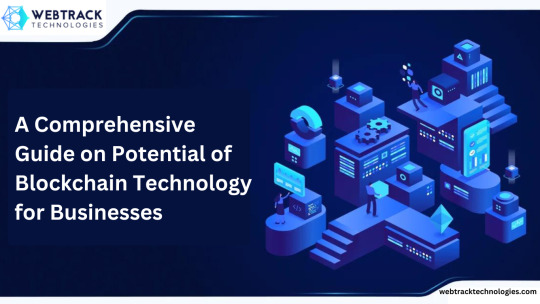
In the quickly evolving landscape of technology, blockchain technology has gained more attention. Initially, blockchain was introduced as the underlying technology for cryptocurrency like Bitcoin. However, it has become a disruptive force in many different industries. Indeed, this technology has become a powerful tool that provides a decentralized and immutable platform for businesses worldwide. Want to know more about this technology? If so, you are in the right place. In this blog, we embark on a journey to explore the fundamental concepts of blockchain, its practical applications, and the potential it holds for shaping the future of your business.
What is Blockchain Technology?
Blockchain is an information storage method that prevents manipulation, hacking, and alteration. Fundamentally, blockchain is distributed ledger technology (DLT) that is decentralized and records transactions across numerous nodes. Imagine a digital ledger that is copied among several computers globally rather than being stored in a single place. Every time a transaction happens, it is added to the block. A block becomes a chain once it has all the transactions and is connected to the previous block. Resultantly, it is referred to as a blockchain.
Blockchain technology is a framework that keeps track of all the transactions across several databases. This is referred to as a block or chain. Usually, this storage system is known as a digital ledger. The holder’s digital signature confirms the transactions in the ledger. Hence, the information is extremely secure. In short, the digital ledger can be the same as a Google spreadsheet that is dispersed across multiple network nodes.
Key Features of Blockchain:
Decentralization: Unlike conventional databases which are centralized, blockchain operates on several copies of databases spread across multiple nodes.
Transparency: Each participant on the network can see the transactions, prompting loyalty and trust.
Immutability: Blockchain technology ensures data integrity as once the transaction is completed it cannot be modified.
How Does Blockchain Work?
Presently, you may have observed that many businesses worldwide have been integrating blockchain development. However, how does blockchain technology work exactly? Is this a simple addition or a major change? Blockchain development technology is presently in its progression stage, but it has the potential to become revolutionary in the future. So, let's get to know how blockchain technology works:
Transaction Initialization: A user starts a transaction with his/her digital signature and the public key of the subsequent participant.
Verification: The network of computers then approves the transaction utilizing specific algorithms. An authorized transaction can include cryptocurrency, records, contracts, or any other kind of information.
Block Creation: After a transaction is finished, it is merged with others to create a new block of data.
Adding to the Chain: This block is then permanently merged with the existing blockchain and cannot be altered.
Why is Blockchain Important for Businesses?
Blockchain technology is revolutionizing industries by streamlining operations, enhancing security, and fostering trust through immutable transactions. Investing in enterprise blockchain development will become crucial simply for competitive reasons. Blockchain-powered smart contracts are reducing IT costs, streamlining complex procedures, and eliminating the need for middlemen across various businesses. Furthermore, blockchain’s enterprise value is predicted to rise as business implementations become more sophisticated and refined.
How Can Blockchain Benefit Businesses?
Blockchain development services offer a lot of perks that can reform different industries. Furthermore, making businesses more secure, transparent, and efficient. Here are some reasons why opting for blockchain technology is a wise decision:
Increased Security - Blockchain technology secures the data using cryptographic methods. This prevents unauthorized parties from changing the information. Each block in the chain creates a secure, and unchangeable ledge by containing a cryptographic hash of the last block. This security feature makes blockchain a wise option for apps where data integrity is critical such as financial transactions, healthcare records, etc.
Decentralization - Blockchain works in a decentralized network of computers as compared to conventional centralized systems. As a result, decentralization eradicates the need for middlemen, lowering expenses, and potential failure points. Moreover, blockchain networks foster a more inclusive and democratic ecosystem.
Transparency and Immutability - Every transaction stored on a blockchain is both transparent and unchangeable once it is recorded. This feature built trust among participants because all parties can confirm the integrity of data without depending on a middleman. Indeed, immutability ensures that records are unchangeable. Therefore, the risk has been reduced and accountability has been enhanced across different processes.
Cost Efficiency - By removing intermediaries and simplifying procedures, blockchain development can drastically cut operational costs aligned with traditional systems. Self-executing contracts with predetermined norms, automated tasks, and smart contracts - further reduce expenses. Additionally, blockchain technology makes the transaction process faster, which reduces operational time and costs.
Enhanced Traceability and Audibility - Participants can track the origin and path of assets or products throughout the supply chain. This is possible because blockchain technology provides a clear transaction trail. This traceability feature is valuable in industries such as pharmaceuticals and food, where tracking the provenance of goods is essential for consumer safety.
Innovation and Disruption - Blockchain development promotes innovation by facilitating the development of the latest business models and decentralized applications (DApps). New approaches to organize and execute agreements without middlemen are introduced by smart contracts. Additionally, blockchain facilitates tokenization, unlocking liquidity, digitally representing real-world assets, and permitting fractional ownership.
Global Accessibility - Blockchain functions as a distributed ledger available to individuals with an internet connection, giving all participants the same opportunity regardless of their financial or geographic circumstances. Thanks to blockchain, individuals from any region can now access banking services.
Regulatory Compliance - Although blockchain encourages decentralization, its permissioned networks and privacy-enhancing features also make it possible to comply with regulatory needs. Sensitive data can be kept safe and compliant with legal frameworks by using blockchain solutions that are tailored to particular regulations.
Read More: A Comprehensive Guide on Potential of Blockchain Technology for Businesses
#webtracktechnologies#web development services#shopify web development#wordpress developer#professional web development services#wordpress website development#custom website development services#web designing#blockchain#blockchain development#blockchain developer for hire#blockchain technology
5 notes
·
View notes
Text
NFT marketplace development services
Debut Infotech pioneers NFT marketplace development services, leveraging cutting-edge blockchain technology to create seamless platforms for buying, selling, and trading digital assets. Our team is skilled in creating bespoke solutions that are suited to your unique requirements, guaranteeing safe transactions and top-notch user experiences. Join together with us to seize the opportunity presented by the expanding NFT sector and confidently establish your brand in the digital economy.

#nft development services#music nft marketplace#fashion nft marketplace#artificial intelligence#blockchain
2 notes
·
View notes
Text
NFTs and Beyond: The Evolution of Digital Ownership at the Blockchain
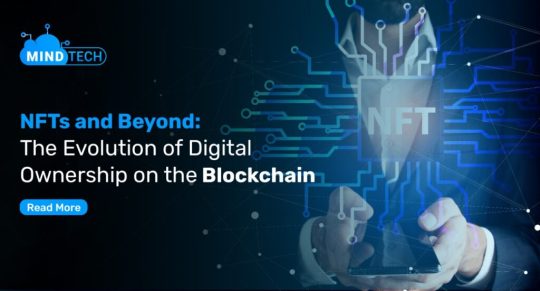
In latest years, Non-Fungible Tokens (NFTs) have transformed the idea of digital ownership, marking a brand new era of blockchain innovation. NFTs are particular virtual property that constitute ownership or authenticity of particular gadgets or content material, verifiable at the blockchain. This article explores the evolution of NFTs and their effect on digital possession.
Definition of NFTs
NFTs are awesome digital belongings that certify ownership or authenticity of a specific item or content. Each NFT is precise and verifiable at the blockchain, making it best for representing digital collectibles, artwork, and other assets.
Overview of Blockchain Technology
Blockchain serves as the inspiration for NFTs, providing a decentralized and immutable ledger for recording transactions. It is a allotted database that continues a constantly growing listing of statistics, or blocks, connected collectively in a chronological chain. This ledger guarantees transparency, protection, and censorship resistance, allowing the creation and transfer of digital assets correctly.
The Rise of NFTs
NFTs trace their origins to early blockchain experiments like Colored Coins and Rare Pepes. However, it become the release of CryptoKitties in 2017 that brought NFTs into the mainstream. Since then, the NFT ecosystem has seen large boom, marked by way of milestones along with the introduction of standards like ERC-721 and ERC-1155 and top notch events like Beeple’s $sixty nine million sale of a virtual artwork.
Understanding the Hype Surrounding NFTs
The hype round NFTs may be attributed to their novelty, shortage, and ability for democratizing get admission to to virtual assets. NFTs have captured the creativeness of creators, creditors, and customers, imparting new avenues for monetization and ownership inside the virtual realm.
Understanding Digital Ownership
Traditional ownership relates to tangible property, at the same time as virtual possession pertains to intangible belongings saved in digital form, like cryptocurrencies and NFTs. Establishing virtual possession offers demanding situations because of the borderless and pseudonymous nature of blockchain transactions, requiring robust security measures and regulatory oversight.
Role of Blockchain in Digital Ownership
Blockchain generation performs a important position in permitting and safeguarding virtual ownership via offering a obvious, tamper-proof, and decentralized ledger. Through cryptographic techniques and consensus algorithms, blockchain networks make sure the integrity and immutability of digital property, facilitating peer-to-peer transactions.
Exploring the Use Cases of NFTs
NFTs have found applications in artwork, gaming, and tokenizing real-global belongings. They have revolutionized the art enterprise through supplying artists with new approaches to monetize their work and engage with a global audience. In gaming, NFTs allow players to very own and change in-game belongings, developing new monetization opportunities and participant-pushed economies.
Conclusion
Advancements in NFT and blockchain technologies have reshaped the digital possession panorama, supplying progressive answers for creators, creditors, and investors. From artwork to gaming to real-global assets, NFTs have the capability to revolutionize possession and switch mechanisms, democratizing get admission to to wealth and possibilities.
2 notes
·
View notes
Text
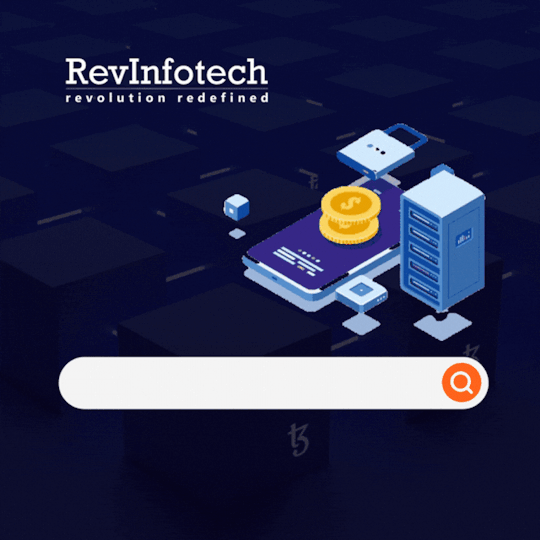
Find the best blockchain development companies at RevInfotech! Get expert solutions tailored to your business needs when it comes to this transformative technology. Our top-notch developers deliver cutting-edge solutions that revolutionize industries, from smart contracts to decentralized applications. Get started with blockchain development from RevInfotech today!
#offshore blockchain development company#offshore blockchain development services#blockchain development services in usa
2 notes
·
View notes
Text






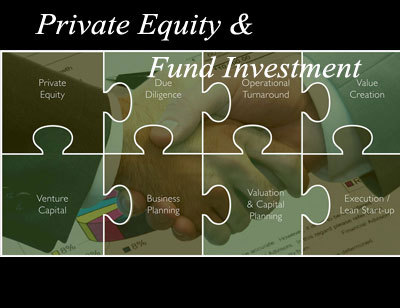
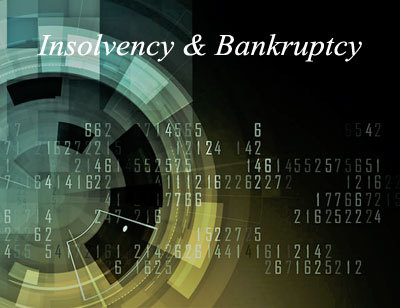





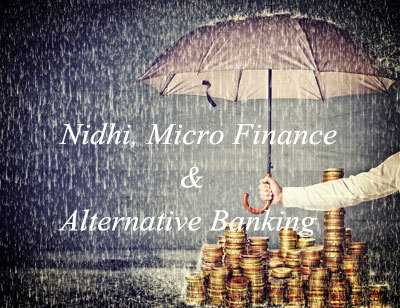




Equi Corp Legal has the best lawyers in Delhi NCR
#Corporate Disputes Litigation Lawyers in Delhi#Insolvency Bankruptcy NCLT Lawyers in Delhi#Private Equity Funds Investment Transaction Advisory M&A Lawyers in Delhi#Technology E-Commerce Fintech Blockchain Lawyers in Delhi#Regulatory Compliance Legal Audits in Delhi Noida#Director Investor Shareholder Dispute Litigation Lawyers in Delhi#Sports Gaming lawyers in Delhi#Startup Investor Lawyers in Delhi#Banking NBFC Financial Services DRT Debt Restructuring Lawyers in Delhi#Corporate lawyers in Delhi#Arbitration Lawyers in Delhi#Consumer Protection Lawyers in Delhi#Commercial Civil Disputes Litigation Lawyers in Delhi
10 notes
·
View notes
Text
Integration of AI and Blockchain: All You Need to Know
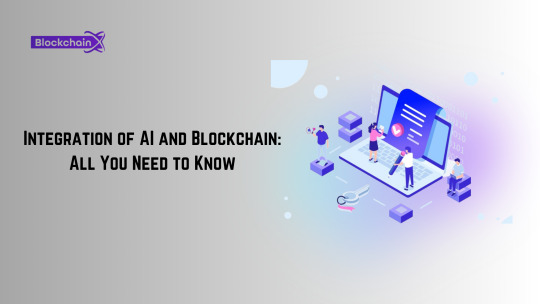
The convergence of AI and the metaverse
Interestingly, this convergence has its roots in the same hardware that powers it. GPUs, known for rendering rich virtual spaces, are the same workhorses that train AI models. Their parallel computing capabilities not only make them invaluable in AI development, but also in bringing the complex environments of the Metaverse to life. This synergy is evident in the rising value of GPU manufacturers like Nvidia, highlighting the intertwined growth of artificial intelligence and virtual reality technologies.
Looking ahead to 2024, the convergence of AI and the metaverse is shaping up to be a fundamental advance in our technological journey. We are about to witness how AI transforms the act of creation within the metaverse. This year, we predict that AI will evolve beyond its current capabilities, allowing creators to create expansive virtual worlds simply through the power of description. The metaverse will no longer require complex skills in 3D modeling and animation; instead, it will respond to the creative impulses of Human thought, which AI brings to life.
The trust architecture of tomorrow
The year 2023 was a crucible for blockchain, with the industry going through legal challenges and corporate upheavals. These tests, reminiscent of the growing pains of any technological breakthrough, heralded the maturation of blockchain. Amid this legal maelstrom, the essence of blockchain – the digitization of asset ownership – remained resolute and unscathed, continuing its march towards the technological revolution.
We envision blockchain merging into the fabric of the Internet, similar to the invisible but vital protocols that power our emails and instant messages. This convergence will make blockchain assets become a native dialect of the digital realm, essential and, most importantly, invisible to the user. Interacting with blockchain will be as simple as sending an email, with its hidden complexities and omnipresent efficiency and security. In this future, blockchain development services is not just a technology; it is a silent orchestrator of digital trust and ownership.
Synergies between virtual reality and the metaverse
In 2023, virtual reality (VR) has risen to become the next frontier in human-computer interaction, providing unprecedented bandwidth for digital communication and embodying the essence of presence. This leap forward has been driven by advances from major hardware manufacturers, with the launch of Meta Quest 3 and the long-awaited VR headsets from Apple and Nintendo. Every step in this area is not just about technological progress; It is about redefining our own perception and interaction with digital spheres.
Looking ahead to 2024, we are on the brink of a watershed moment in the spatial computing industry. The potential use case of experiencing events like the NBA Finals from the best seats in the stadium, all from the comfort of home, is set to capture the imagination of the masses. This experience, bridging the physical and digital worlds, will likely be a catalyst for widespread adoption among the early majority. The road ahead for virtual reality is long and full of potential, but the convergence of technologies such as artificial intelligence, blockchain and advanced hardware is setting the stage for a seismic shift.
The cultural and economic impact
In the narrative of our digital evolution, Generation Z emerges as the vanguard of a new cultural epoch. Born in a world where virtuality is as real as the air they breathe, these digital natives are the first to fully immerse themselves in the fruits of technological convergence. His initial, playful and experimental forays into the creation of memes and digital artifacts are nothing more than the prologue to a deeper and more significant change. With AI-powered tools and the metaverse at your fingertips, they don't just use technology; They are reshaping it, subjecting the digital universe to their imagination and whims.
We see these young minds not only embrace but master the art of creation within these new realms. They are the pioneers of a world where user-generated content is not just a hobby but a new economic frontier. In their hands, creativity and innovation become more than expression; They are the keys to unlocking new forms of value and influence. The power once held by a select few over coding and legal complexities is now democratized in the hands of these young creators, heralding a future where the digital realm is limited only by the imagination.
In 2024
As the year 2024 progresses, we find ourselves on the cusp of a transformative era in technology. The integration of AI, blockchain and virtual reality is creating a new digital landscape. This convergence is more than a mere fusion of technologies; It is a revolution in the way we interact with the digital realm. The advancement of AI is redefining creative possibilities in the metaverse, allowing environments to be shaped solely by thought. Blockchain evolves into a fundamental layer of digital trust, making asset ownership part of the fabric of the Internet. Virtual reality, on the brink of a breakthrough, will radically change our sensory experiences in digital spaces.
Fundamentally, this technological synergy is the playing field of Generation Z, who are not only users but active creators and modelers of these areas. Their commitment to these technologies is not just about leisure; It is the forging of a new economic and cultural landscape where imagination is the main currency.
#blockchain#blockchain development#blockchain development company#blockchain development service#blockchain technology
3 notes
·
View notes
Text
Empower your dApp journey with KrypCore, your one-stop solution for streamlined dapp development. Unleash the potential of our APIs, SDK, and cutting-edge web3 tools for a seamless and powerful dApp creation experience.
#web3#web3 development company#Web3 Services#best web3 development platform#build web3 app#create web3 app#create web3 dapp#blockchain dapp#wallet dapp#web 3 app development#build dApp
2 notes
·
View notes